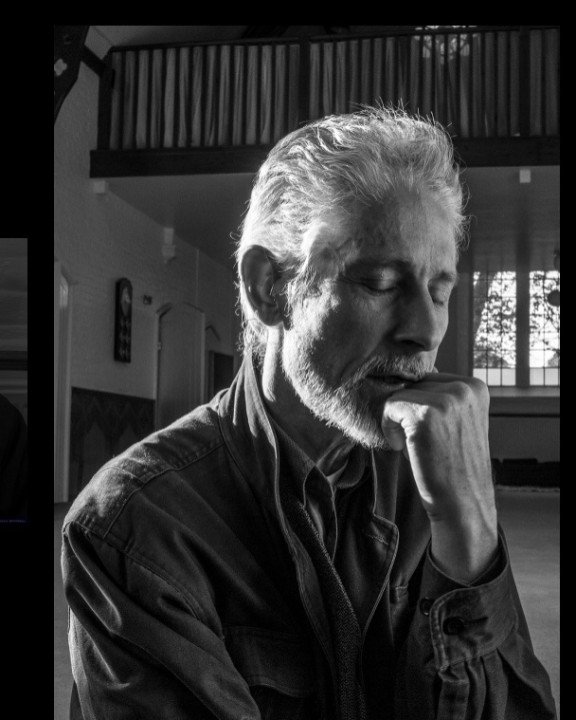Acquitted of money laundering charges in halal beef export case
 CEDAR RAPIDS — Convicted Monday of most charges in a halal beef exporting scheme, Midamar Corp. founder William Aossey Jr. was put in jail while a federal judge considers what to do with the 73-year-old until his sentencing.
CEDAR RAPIDS — Convicted Monday of most charges in a halal beef exporting scheme, Midamar Corp. founder William Aossey Jr. was put in jail while a federal judge considers what to do with the 73-year-old until his sentencing.
Aossey was convicted by a jury on 15 of 19 federal charges involving the sale of misbranded “halal” beef products and falsifying export documents and certificates.
The founder of the Cedar Rapids company, at 1105 60th Ave. S.W., was accused in October 2014 of falsely representing that the beef he was exporting to Malaysia and Indonesia met strict slaughtering standards.
After a trial last week, the jury acquitted him Monday of four charges of money laundering but convicted him on other charges including conspiracy and wire fraud. He could face years in prison when sentenced.
Aossey, who was free during his trial, was taken into custody by U.S. Marshals after the government asked for him to remain in jail pending his sentencing. He appeared in leg chains for the detention hearing.
During that hearing, U.S. District Chief Judge Linda Reade heard testimony about Aossey’s relationships with others charged with crimes — including Ali Al Herz and three of his family members, accused of trying to smuggle guns to Lebanon — and his international ties that pose a flight risk.
Haytham Faraj, Aossey’s attorney, argued his client isn’t charged in the gun smuggling case. Aossey didn’t know that weapons were in a shipping container so it’s “guilt by association” to try to link him to that case, Faraj said.
Months ago, Midamar initiated a clothing drive to collect items for refugees in Lebanon.
Midamar employees testified Monday they boxed up some items for the shipment but didn’t know about the guns and said the container belonged to Ali Al Herz, not Midamar or Aossey.
Cedar Rapids Police Det. John Matias, who is working the gun smuggling investigation, testified Aossey and Ali Al Herz were good friends and that Al Herz had worked at Midamar for several years in the past.
He said Aossey called the freight company, upset, when he learned the container was being searched by authorities. Matias said Aossey called it “my” container.
Matias then identified a photo from a surveillance video that showed Aossey looking in the container that was at Midamar in May. He also walked inside of it.
However, the guns were found hidden within Bobcat skid loaders in the shipment and couldn’t easily be seen.
Michael Hare, an IRS special agent, testified that Aossey showed up after authorities arrived with a search warrant at Midamar in May and was “disrespectful” and “belligerent,” demanding to have agents’ names.
Reade said it was odd Aossey would be so agitated if he didn’t think anything was wrong.
Faraj said it was understandable from Aossey’s perspective because he was trying to do something good by sending relief items to refugees, and being stopped by authorities for an unknown reason.
Assistant U.S. Attorney Richard Murphy admitted there wasn’t direct information tying Aossey to buying or smuggling guns. But he argued it was difficult to believe Aossey didn’t know about it.
Murphy said Aossey couldn’t be “trusted to abide” by the law. He said Aossey had worldwide connections and could leave the country.
Murphy added that Aossey admitted during the beef export trial to breaking the law by telling employees to remove required USDA labels and directing others to falsify export documents.
Faraj argued Aossey’s entire life is in Cedar Rapids — his work and family — and he wouldn’t risk it by leaving the country.
Reade, however, said Aossey will remain in jail until she makes a ruling on whether to release him pending sentencing, which could be, at least, a few months away.
Aossey was found guilty of 15 counts — one count of conspiracy to make false statements, sell misbranded meat and commit mail and wire fraud; seven counts of making or causing false statements to be made on export applications; and seven counts of wire fraud.
Each count of the wire fraud alone calls for up to 20 years.
ARTICLE TWO
By Ryan J. Foley – Associated Press
A prominent Iowa businessman was found guilty Monday of falsifying documents as part of a scheme to export beef to Malaysia and Indonesia that didn’t meet those countries’ strict slaughter standards.
A federal jury in Cedar Rapids convicted Bill Aossey Jr. of 15 of 19 charges he faced, including conspiracy, making false statements on export certificates and wire fraud. He was acquitted of four counts of money laundering.
Aossey is the founder of the Midamar Corp., a Cedar Rapids-based company that is considered a pioneer in the sale of halal meat and food products. The 73-year-old is also a longtime leader in the city’s relatively large Muslim community.
After the verdict, U.S. District Judge Linda Reade ordered Aossey held in federal custody. Assistant U.S. Attorney Rich Murphy said Aossey could face a prison term of five or more years at his sentencing, which hasn’t been scheduled.
Prosecutors say Aossey oversaw a scheme in which Midamar employees lied about the origin of their products so they could export them to Malaysia and Indonesia from 2007 to 2010. Both countries restrict imports to slaughterhouses that are certified as meeting their standards for halal, or slaughter practices based on Islamic law.
The products being shipped had come from a Minnesota slaughterhouse, PM Beef, that wasn’t approved by Malaysia or Indonesia. Instead, Aossey directed employees to remove PM Beef’s establishment number from the packaging and replace them with ones that falsely showed that the products had come from J.F. O’Neill Packing Co. in Omaha, Nebraska, a slaughterhouse that had certification.
Testifying in his own defense during the weeklong trial, Aossey admitted that he told employees to change the establishment numbers and that the company falsified export documents. But he said he didn’t believe those actions were criminal and repeatedly described them as minor administrative infractions — an explanation criticized Monday by the judge.
Aossey’s attorney, Haytham Faraj, said he respected the jury’s verdict but would appeal. He said Aossey admitted making misrepresentations but argued they were immaterial because the customers were satisfied with the products they received. He said PM Beef’s slaughtering methods were accepted as halal.
“The meat was halal and it continued to be halal,” he said.
Faraj said the violations were addressed by the U.S. Department of Agriculture, which sanctioned Midamar after discovering them in 2010, and should not have later been charged as crimes.
A USDA inspector testified that such labeling violations were serious and could result in countries blocking all beef imports from the U.S.
The company and Aossey’s two sons, Midamar directors Jalal and Yahya “Bill” Aossey, are also awaiting trial as part of the yearslong investigation. Each has pleaded not guilty to allegations that Midamar sold millions in beef to customers overseas that didn’t follow the halal practices promised in its labeling and advertising.
Faraj said that, in his experience, it was “highly unusual” for a judge to order a white-collar criminal jailed pending sentencing. He called his client “a nice old man” who was known in the community for his generosity.
But during a detention hearing Monday, prosecutors tried to link Aossey to a scheme in which four defendants are charged with using Midamar’s shipping facilities in Cedar Rapids to smuggle weapons to Lebanon. Aossey had been in contact with the suspects, one of whom is a close friend, and is shown on surveillance video briefly going into one of the containers after it was packed, prosecutors argued.
Faraj said Aossey was unaware of the weapons and shouldn’t face “guilt by association.”
But Reade said she was skeptical of Aossey’s claim of ignorance, noting he was upset after learning the container had been seized.
ARTICLE THREE
OPINION
Is Falsely Claiming Food Is Halal a Federal Crime?
The US Department of Justice appears to be criminally prosecuting people for failing to satisfy Islamic religious standards, thereby putting the First Amendment’s Establishment Clause at risk.
The case concerns the financial empire of the Aossey family of Cedar Rapids, Iowa. To summarize briefly, last year the government indicted brothers Jalel and Yahya Aossey, along with two companies they operate, Midamar Corporation (Midamar) and Islamic Services of America, Inc. (ISA). Midamar distributes supposedly halal meat, which is to say, meat slaughtered according to Islamic law. Islamic Services of America, Inc. (ISA), certifies meat and other products as halal. Jalel, Yahya, and their father William (Bill) Aossey serve as corporate directors. Yahya is president of ISA. Bill is president of Midamar.
ISA’s website claims the company is a “globally recognized symbol of Halal integrity. Islamic Services of America is a leading Halal Certification body in the United States and North America, recognized internationally.” Midamar’s website claims it is “a trusted Halal brand that has earned a solid reputation for Halal integrity.” Previously, Midamar’s website also claimed the company was a “trusted Halal food supplier and sponsor for the annual conferences and conventions hosted by ISNA, CAIR, AMC, ICNA, and MAS, and W.D. Muhammad” – each of which has “had dealings with Islamic extremist and/or hate groups.” It is unclear whether Midamar still supplies food to these groups.
The government’s theory is that the defendants sold non-halal meat by misrepresenting it as halal. Some of the claimed misconduct involved falsifying paperwork to make it appear as though the meat were slaughtered at a warehouse whose meat was halal, whereas in fact it was slaughtered at another warehouse whose meat was not halal. Other claims are even more obviously religious. For example, the indictment states, “Contrary to representations made by defendants… beef certified by defendant ISA as complying with the Halal slaughter standards… had not been slaughtered in accordance with the represented or required standards.” It also claims defendants misrepresented “the manner of slaughter” and “the level of adherence to certain represented Halal practices and standards.”
Bill Aossey was separately indicted two months before the others. The charges against him are more straightforward and less encumbered with religious claims.
On June 5, Jalel and Yahya Aossey, along with Midamar and ISA, filed a motion to dismiss some claims against them on the theory that the court could not decide whether they lied about the meat’s halal status without making religious determinations that would violate the Establishment Clause. The defendants complain, “The United States Attorney’s office seeks the criminal enforcement of adherence to Halal slaughter requirements of the Muslim countries of Malaysia, Indonesia, Kuwait, and UAE.”
It is possible that the charges are sufficiently focused on objective issues of false paperwork to survive the defendants’ challenge intact.
It is worth noting that last January, former Midamar operations manager Philip Payne pleaded guilty to falsifying US Department of Agriculture marks of inspection of halal meat shipments, “to give the false impression that shipments of beef complied with import requirements of Malaysia and Indonesia where the beef was shipped and also complied with US export requirements.” Payne also admitted that some meat Midamar sold as halal was actually kosher.
But, it should be noted that federal courts have generally declined to intervene in claims of religious fraud, as noted in defendants’ motion. In the 1995 case, Barghout v. Bureau of Kosher Meat & Food Control, the federal Fourth Circuit Court of Appeals struck down a Baltimore ordinance making it a misdemeanor to sell non-kosher food mislabeled as kosher. Commack Self-Service Kosher Meats, Inc. v. Rubin is a 2000 case in which a federal court struck down New York State laws aimed at protecting consumers from fraudulent claims that food is kosher. In the 2013 case Wallace v. ConAgra Foods, Inc., the lower court declined on First Amendment grounds to hear plaintiffs’ claim that the defendant “failed to slaughter cattle used in its products in compliance with ‘objective’ standards” required for the meat to be considered kosher; an appeals court later returned the case to state court on jurisdictional grounds.
One “usual suspect” has been notably absent from the proceedings. The American Civil Liberties Union has previously opposed government involvement in identifying religiously-acceptable food. Besides representing George Barghout in the case noted above, it filed a lawsuit in 2009 challenging the constitutionality of a Georgia law, the Kosher Food Labeling Act. “By mandating that any food sold as kosher in the state of Georgia must meet the ‘Orthodox Hebrew religious rules and requirements,’” the ACLU explained, “the challenged statute delegitimizes alternative interpretations of kosher adhered to in other Jewish communities.” That suit was voluntarily dismissed after Georgia changed its law. Despite its track record on the issue, the ACLU did not respond to inquiry about whether it had any Establishment Clause concerns over prosecuting someone for halal meat violations.
The ACLU’s Iowa chapter likewise declined to express an opinion about the prosecution. Interestingly, ACLU-Iowa was previously on the same side as the Aosseys on an Establishment Clause issue. Back in 2003, the Aosseys were involved in a project of Muslim Youth Camps of America (MYCA) to build a camp on the shores of Coralville Lake. The proposed development tract was owned by the US Army Corps of Engineers, and would have included construction of a 36-foot high prayer tower, in addition to a conference center, cabins, and a caretaker’s residence. Bill Aossey was MYCA’s representative, and Jalel Aossey served as a board member. On that occasion, ACLU-Iowa had no concerns about the prayer tower on federal land violating the Establishment Clause. About the current case, ACLU-Iowa has taken no position.
The government has not yet responded to the motion. The court gave it until one week after the conclusion of Bill Aossey’s trial to respond. The trial concluded July 13 with a verdict of guilty on 15 of the 19 charges against him. Jalel and Yahya Aossey are scheduled to begin trial on September 28.
Johanna Markind is associate counselor at the Middle East Forum



